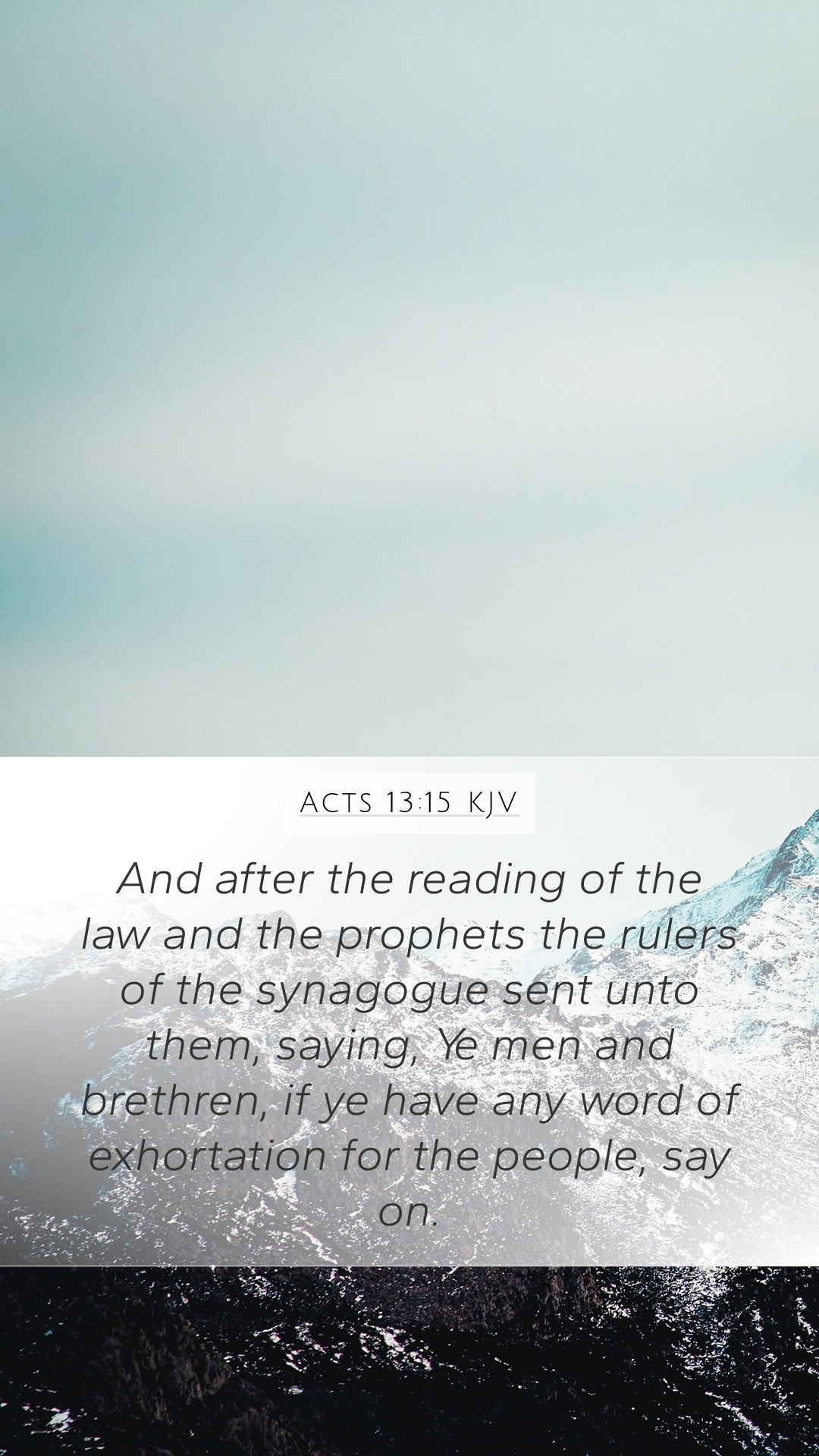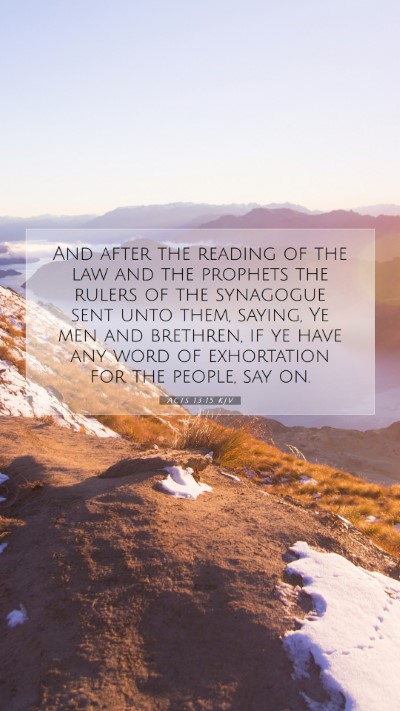Understanding Acts 13:15
Bible Verse: Acts 13:15 - "And after the reading of the law and the prophets, the rulers of the synagogue sent unto them, saying, Ye men and brethren, if ye have any word of exhortation for the people, say on."
Overview
The verse Acts 13:15 presents an invitation for teaching and exhortation issued to Paul and Barnabas during their visit to the synagogue in Pisidian Antioch. This moment reflects the practice of the early Church to engage with the Scriptures and share interpretations therein. The significance of this passage lies in the dialogue between the ancient texts and the gospel message that the apostles were called to share.
Commentary Insights
-
Matthew Henry:
Henry emphasizes that this occasion represents the continuity of the Jewish tradition of scriptural reading followed by interpretation. He observes that the leaders of the synagogue, valuing the customary practice of reading the Law and Prophets, offered Paul and Barnabas a platform to articulate their understanding and teaching of the Scriptures, thus highlighting the importance of discovering new insights from the very texts that form the foundation of faith.
-
Albert Barnes:
Barnes notes that the invitation signifies an openness to the new Christian movement within a Jewish context. He points out that the phrase "if ye have any word of exhortation" indicates that the rulers acknowledged the potential of the apostles’ message to provide spiritual edification and encouragement. It reflects the transitional nature of that period as the Church began to interpret and apply the Old Testament scriptures in the light of Christ.
-
Adam Clarke:
Clarke provides insights into the cultural context of this invitation for exhortation. He highlights that in Jewish customs, it was common for visiting individuals to expound on the Scriptures, and this act symbolizes the merging of the new covenant with the old. Clarke further interprets the term "exhortation," noting that it refers to both encouragement and a challenge to walk in faith, which is crucial for the church's mission at that time.
Theological Implications
Acts 13:15 not only serves as a historical account but also prompts reflection on how modern believers engage with Scripture. The examples set by Paul and Barnabas encourage contemporary Christians to seek deeper insights from biblical texts and share them within their communities. This interaction underscores the significance of biblical exegesis as a tool for spiritual growth and teaching within diverse church settings.
Application for Bible Study Groups
In Bible study groups, this verse can serve as a springboard for discussions about how to effectively read and interpret Scripture. Participants can explore:
- Ways to foster open dialogue about Scripture interpretations.
- The importance of contextual understanding when discussing biblical passages.
- How to apply insights from the law and the prophets in today's life and ministry.
Cross References
- Acts 15:21 - Reflects on the importance of synagogue readings in spreading the gospel.
- 1 Timothy 4:13 - Paul encourages the reading of Scriptures as a priority in the church.
- Luke 4:16-21 - Illustrates Jesus' reading at the synagogue and His interpretation as fulfillment of prophecy.
Conclusion
Acts 13:15 invites believers to probe deeply into the meanings of biblical texts, generating applications for their lives and communities. By understanding the exchange in this verse, Christians gain insight into the foundations of early church practices and their relevance for contemporary faith. The dialogue initiated in the synagogue reminds us of the ongoing responsibility to read, interpret, and teach the Scriptures in a manner that honors the tradition while revealing the new life found in Christ.


